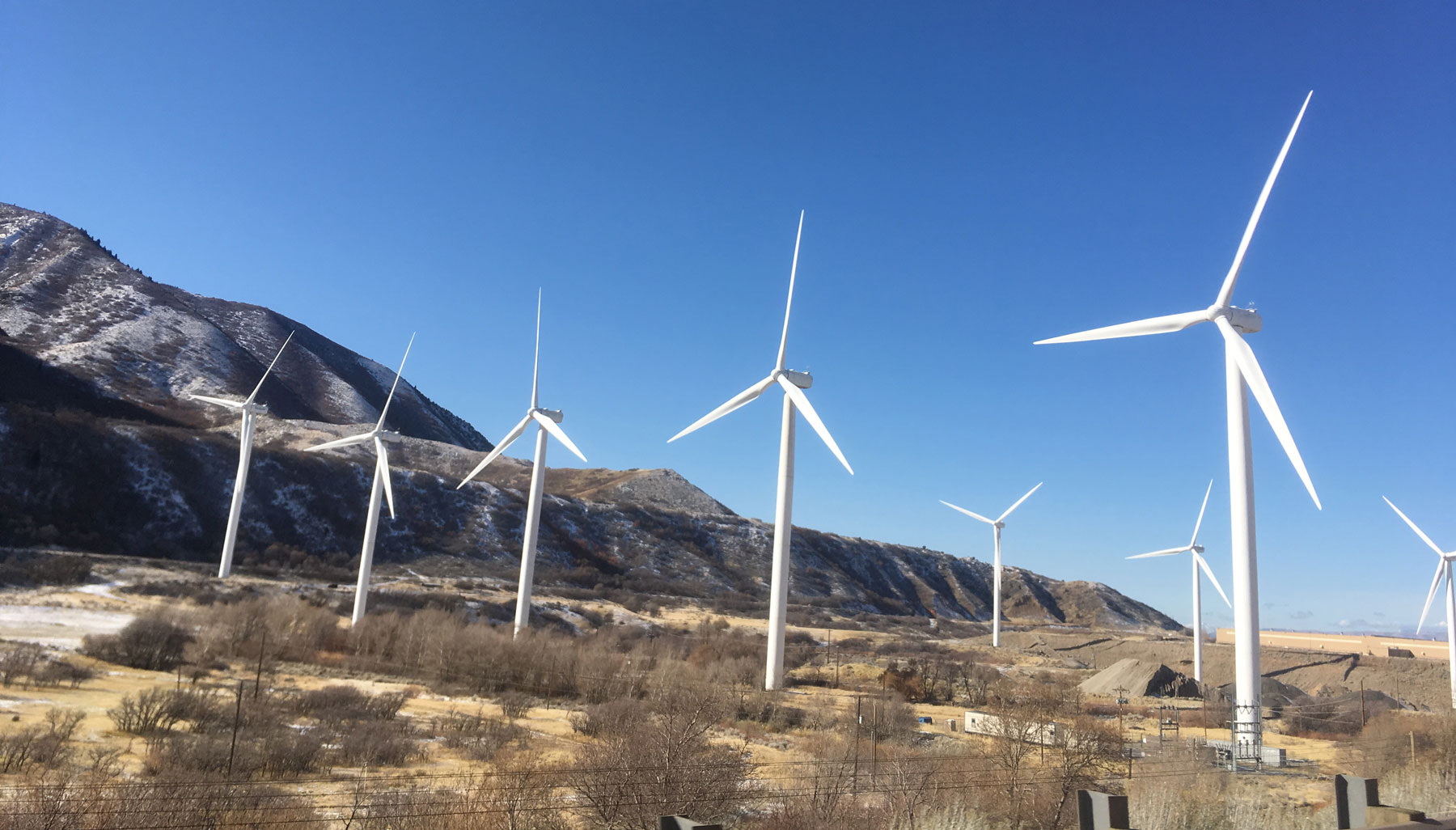Water supplies, dependent on more unreliable mountain snowpack and diminished flows from the Colorado and other rivers, are threatened.
The state’s pinyon-juniper woodlands are receding, replaced with scrub and grassland. And the volume of the Great Salt Lake is half what it was at the end of the 20th century, hitting all-time lows.
WRA’s work in Utah to address climate change and its effects has focused on urging the state’s transition to clean energy generation and use. In 2008, Utah took a step forward in establishing a voluntary renewable portfolio standard that suggests the state achieve 20% renewable energy by 2025.
Working with PacifiCorp, one of the largest electric utilities in the West, WRA negotiated an agreement preventing PacifiCorp from assigning more coal to Utah’s electricity resource mix. The agreement also requires the utility to prove that continuing to use coal resources to generate electricity is in the public interest and beneficial economically for Utah ratepayers before the utility can increase the state’s dependence on coal. WRA analyzed the economics of PacifiCorp’s coal resources and demonstrated to Utah stakeholders that coal is not in the economic or environmental interest of electricity customers.
WRA has also worked to transition fossil-fueled vehicles to electric powered cars and trucks. In 2021, a proposed policy to collect road usage fees would have penalized electric vehicles (EVs) relative to fossil-fueled cars. WRA analyzed the proposal and its underpinning assumptions, found them to be unsupportable, and helped defeat the measure.
WRA continues to engage on efforts to develop more reasonable electric vehicle legislation, including determining equitable fees for replacing lost gas tax revenues and creating a regulatory process that supports adoption of electric vehicle transportation.

Transitioning the Power Sector in Utah
When WRA commissioned a poll in 2020 on whether Utahns favored shutting down PacifiCorp’s coal-fired power plants and generating power from renewables instead, the results were unequivocal. Voters supported the transition to clean energy by a margin of 53% to 33%.
Still, the process of developing policies to reduce the state’s dependence on fossil fuels for electricity generation has been slow.
Actions outside Utah’s borders have had a dramatic effect, however, since PacifiCorp is a regional utility that operates across six states, and the impacts of those other state actions have rippled across the energy sector.
In 2016, Oregon enacted a law banning coal power from electricity rates by 2030. This action increased pressure on PacifiCorp, Utah’s largest utility, to reconsider its commitment to coal.
In order to keep PacifiCorp’s coal plants running past 2030, Utah would have to agree to pay for more coal-fired power, while wind and solar energy have become less expensive than coal.
WRA has provided key analytics to demonstrate the advantages of reducing Utah’s reliance on coal resources, not just for clear environmental benefits, but to reduce costs for Utah’s utility customers.
Expanding wind and solar power generation also has focused attention on the state’s 100-year-old energy grid. Discussions are underway at the Utah Public Service Commission about how to adapt and expand the grid to modernize it and make it more flexible. WRA and our partners are working to establish policies and programs that help homeowners, businesses, and EV owners shift their usage away from peak usage times to benefit the grid and reduce emissions.
WRA also is aiding cities in developing clean energy policies to encourage renewables and support the transition to EVs that is building momentum across the region and the country.

Years Of Success Working On Clean Energy In Utah
2019
Multi-State Agreement
After strong advocacy work by WRA, stakeholders in Utah and the five other states that PacifiCorp serves signed a multi-state agreement to resolve some of the issues associated with how the utility’s coal plant costs will be allocated in the years ahead. The agreement was needed because coal-fired power generation will be removed from rates in Oregon, Washington, and California, due to recent laws passed in those states. PacifiCorp and the utility regulatory commissions in Utah, Idaho, and Wyoming now will need to make important decisions about whether they want to adopt the ongoing costs, generation, and emissions from the coal resources being left by Oregon, California, and Washington.
2019
Integrated Resource Plan
With extensive input from WRA, PacifiCorp filed an Integrated Resource Plan calling for extensive new renewable energy generation and transmission upgrades, with plans to retire two-thirds of its coal fleet by 2030 and 83% by 2038.
2018
Wind Generation
With strong support from WRA, the Utah Public Service Commission approved a 1,500 megawatt expansion of PacifiCorp’s wind generation in Wyoming and an associated 140-mile transmission line to access that generation. The new wind energy displaces generation from older, costlier coal plants. Each year, these new wind facilities produce over 4 million megawatt hours of zero-cost, carbon-free wind energy (enough electricity to power 374,000 homes) and avoid 2.4 million metric tons of carbon dioxide annually.
2017
Electric Vehicles
WRA successfully supported an electric vehicle time-of-use rate pilot program for PacifiCorp that was approved by the Utah Public Service Commission and included incentives of up to 200 per customer to participate, along with millions in incentives to add charging stations throughout the state.
2011
Energy Efficiency
Encouraged PacifiCorp to invest in new energy efficiency measures and renewable resources by helping secure an order from the Utah Public Service Commission.
2009
Clean Air
Won a Utah Supreme Court decision rejecting an air discharge permit on the Sevier Power Plant, making the new plant unlikely to proceed.
2006
Greenhouse Gas Reduction
Established with PacifiCorp criteria for evaluating the benefits of lowering greenhouse gas emissions and reducing water consumption when choosing new power supplies.
2006
Transition to Clean Power
Won a precedent-setting Supreme Court victory challenging two new coal plants proposed near Sigurd and Delta. The proposed plants would have affected air quality in nearby communities and national parks like Capitol Reef.
2003
Real Costs of Coal
Convinced PacifiCorp, the state’s major electric utility, to adjust power generation bids by coal providers to account for the increased risk of using this fossil fuel.
2002
Wind Energy
Enrolled over 5,000 residential customers and more than 60 businesses in Utah and Arizona to support wind energy programs.
2001
Energy Efficiency
Secured a 650% increase in annual funding for new energy efficiency programs by PacifiCorp.
2001
Wind Energy Expansion
Promoted grassroots campaign for wind power, helping gain over 3,000 customers to participate in the Blue Sky wind energy program of Utah Power.

